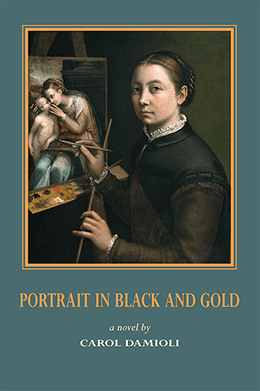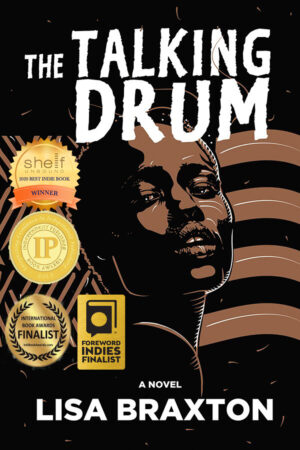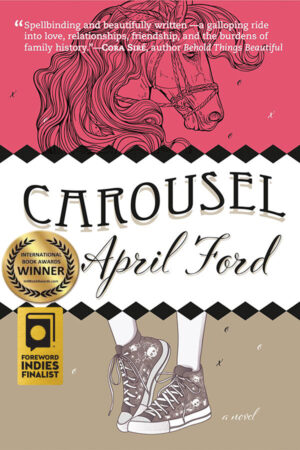Bird Shadows is a playful tale of eccentricities, misconceptions, and misogyny. While working on a personal spiritual project, an irreverent artist encourages her religious sister to rethink the marriage that seems to be killing her soul.
The people in the quaint little Bay of Fundy fishing village of Brood Bay will not soon forget the events of 1995. It was an outrage! A good Christian family was torn apart by the wicked influence of a mentally unbalanced, morally challenged artist. Pastor Wallace was appalled by the improper, if not downright evil, behaviour that had taken place right under his nose. His sympathies were most certainly with the abandoned husband, Warren, deacon of the church, generous and innocent man of God. But was Warren as innocent as he appeared?
Not according to his sister-in-law, Rube. She had always seen through the posing and the praying. As Rube sifted through her dreams, panning for God, her sister, Helen, was forced to acknowledge that her fundamentalist husband was not very Godly.
“An intensely visual and clever take on religious hypocrisy, seen through the vivid eyes of an artist, her oddball friends, and a gaggle of wannabe Christians. Not for the overly-righteous. Praise be—the pages turn by themselves.”
—Carole Giangrande, author of The Tender Birds and All That Is Solid Melts Into Air
“Sisters Rube and Helen—one consumed by dreaming and the other by daydreaming—are as opposite as birds and their shadows. Jennie Morrow’s clever prose flies us between them until, at last, the women reach each other and recognize a startling similarity of shape. The big themes of this novel are deeply serious: the tensions between truths and lies, judgment and acceptance, spirituality and churchiness; and the million ways to stifle human potential. In those depths you’ll find Morrow’s language is as joyful as a sparrow playing in a puddle and as full of intent as a crow chasing a hawk across the sky.”
—Dian Day, author of The Madrigal and The Clock of Heaven
Experts have been puzzled by displays of irrational, unprovoked aggression by Trippers toward their mates and can only conclude, after a great deal of study, that the purpose of this behaviour is to keep the mate submissive and uncertain of its own ability. Often, after prolonged periods of this irrational behaviour, the Tripper’s mate will be unable to function normally.
After showering, Warren returned to the bedroom to dress. He reached into the closet to deposit the underwear he had slept in and noticed the little pile next to the empty hamper. “You missed some,” he grunted over his shoulder to Helen.
“Oh?” Helen, still lying in bed, glanced lazily at the pile of underwear and said, unconcernedly, “Well, put them in the hamper and I’ll get them next time.”
Warren turned, still buttoning his shirt, and gave her a dark look. He tucked in his shirttails, zipped his fly in one irate thrust, and buckled his belt with all the violent indignation he could muster.
“You’re going to be late for church.”
Helen shifted in the bed so that he couldn’t see her face. “I’ll get up in a minute.” The situation amused her. She smiled to herself under the covers. She could feel words lining themselves up like shadow dancers behind a screen. They were teasing, taunting, tempting. A poem had begun to incubate.
She sat quietly all through breakfast. Warren was fuming, but she ignored him. At his side throughout the church service, oblivious to his anger, she happily toyed with words:
It’s hard for a God-fearing man who has no underwear…. The passages of the bible reading rose like smoke to the ceiling of the church; fragments broke off like ashes and floated down into Helen’s poem: “…a more excellent sacrifice than Cain, by which he obtained to keep, to hold, not to be, was translated that he should not see to maintain, yes, to….” Helen grasped the word maintain, dropping it in place: maintain a pure and upright stand….
It’s hard for a God-fearing man
who has no underwear,
to maintain a pure and upright stand
if underneath he’s bare,
not to mention what can happen,
if he’s gazing at God’s sky
and forgets to safely tuck it in
before he zips his fly.
On the following Saturday, in the ordinary home of an ordinary God-fearing family, an extraordinary thing happened. A small pile of socks and underwear that hadn’t made it into the laundry hamper went unwashed. A revolution had begun.
Alone in the house after lunch, Helen got down on her hands and knees and scrubbed the kitchen floor. The thought that she could never see herself as others do had begun as an idea and had metamorphosed into an obsession. She imagined how she would look through the lens of her video camera instead of in the bathroom mirror. Finally, Helen loaded her video camera with a blank tape and, setting it on a chair, recorded herself as she waxed the floor, wiped the counter, peeled vegetables, turned this way and that. She slid the tape into the Playpak, popped it into the VCR, and watched herself. She noticed, with a perverse fascination, that she had begun to slouch, that her hairstyle had no real style, that her jeans made her backside look about as attractive as two couch cushions. She was appalled by what she saw, and at first she credited the location for the unflattering likeness. The depressing, mundane, uninspired domesticity of the kitchen was to blame. Then she blamed the light. Too much light was coming from one direction. Every crease, every wrinkle cast a shadow. She looked old.
She rewound the tape and tried again in the living room, but what she saw made her feel worse. She couldn’t determine exactly what it was. Warren’s chair? The tedious familiarity of the room? She rewound the tape once again, faced the camera toward a blank wall, and pressed record, slowly erasing the shameful images of herself.
At bedtime, Warren glared into the closet. “Helen. I won’t put up with this. Do you hear me?” His outrage rivalled that of an emperor discovering the infidelity of his wife. How was it that a man of God, confident in the superiority of his vision over that of his wife and in fact of all females, could stoop to such juvenile behaviour over a little pile of stinky socks?
“I wash what’s in the hamper,” said Helen.
Warren slammed the closet door. “I’ve put up with enough from you lately.” He threw his watch on the bedside table, dropped heavily to the edge of the bed with his back to her, and wound the alarm clock, before snatching back the bedspread and climbing in. With one final yank of the covers, he became still.
Helen stiffened. She had to in order to prevent her body from rolling into the depression created by Warren’s weight. She was sure an animal would never sleep this close to the vibration of an implied threat. They would act upon their instinct to distance themselves from danger. And so would Rube.
Within minutes, to Helen’s amazement, Warren was snoring. The tears began. Her throat ached with the pressure of anger and began to swell around the unspoken words lodged there, words that began to drain from her thoughts and arrange themselves like droplets on a clothesline.
She crept from the bed, made her way quietly to the living room, and switched on the lamp beside her chair. She wrote: On the surface there were signs of resignation, but only in the darkness did I weep. You were there in the darkness. Did you hear me? Did you care or did you turn away to sleep?
Once again she carefully described all that had happened—what Warren said, how he’d said it, how he’d acted, how she’d felt. She wrote it as if it were a bad dream.
The church interior photo provided me with enough information for my first sketch of the church pews and pulpit; however, the pews were empty. I needed figures—shoulders, backs of heads. I called Gordon and enlisted him as a model, promising a meal in return. It wouldn’t be necessary for us to return to the church. I placed kitchen chairs in my living room, spacing them to mimic the distance between church pews. With my camera on a tripod in a stationary position, I photographed Gordon in one chair after another in an effort to gauge diminishing sizes. When we were finished I popped the cork on a bottle of bordeaux as Gordonhung his jacket on a hook. I tossed a padded envelope on the table in front of him and proceeded to pour the wine.
“What’s this?”
“What do you think? It has slides in it. My address is
written in my handwriting. Any ideas?”
“Sounds like a rejection.” Gordon lowered himself into a chair at the table, reached for his glass, and took a sip.
“Read it.”
He scanned the gallery name on the envelope before unfolding the letter and frowning.
Dear Ms. Peckham,
Thanks for proposing your work to the gallery. We considered it together with many other dossiers at a recent exhibition planning meeting. The gallery’s program for the next eighteen months will focus on the development of critical and resistant strategies in visual production, particularly in relation to feminist concerns and identity politics. Your work makes a complex statement, however we decided not to offer you an exhibition. We feel that your work might be more consistent with curatorial priorities at anoth—
“What the hell does that mean?” Gordon tossed the letter on the table.
“Your guess is as good as mine.”
“‘…the development in critical and resistant strategies in visual production….’ Don’t you think your strategies were critical? Weren’t they resistant enough? Ohh, they didn’t relate enough to feminist concerns…. But they do, don’t they? I mean, many of the issues women have around religion are related to feminist concerns. Identity politics. I may be stupid, but what’s that? They say your work makes a complex statement! This letter makes a complex statement! Well, the long and the short of it is, dear, you’ve been kicked to the curb.”
“Again.”
He raised his glass. “I can think of no better reason for a drink.” In a gentler tone, he asked, “So do you ever wonder why you bother?”
“I wonder all the time.” I sat at the opposite side of the table.
“It can’t be for the money,” he said, gesturing with his wine.
”You’ve got that right.”
“It can’t be for the prestige.”
“Nope. A hoodlum gets more respect.”
“Well, you must be crazy then,” he declared with a shrug.
“What else can I do?”
“You wouldn’t make much of a nurse.”
“How about a demolition expert? I’m in the mood.”
“Yeah, I like it. Go right to the opposite side.” Gordon looked up at the ceiling and chewed his lip. “Destroy things instead of creating them. You’d get more money.”
“I’d have more fun.”
“What’s the difference anyway? Destroy. Create. Destroy. Create. It’s all a matter of how you look at it.”









Inanna Admin –
Bird Shadows by Jennie Morrow
reviewed by Consumed by Ink – April 11, 2022
https://consumedbyink.ca/2022/04/11/bird-shadows-by-jennie-morrow/
What a delight this book is. I knew it was written by a Nova Scotian author, but I didn’t realize Jennie Morrow lives so close to my favourite childhood beach.
There’s an impressive stretch of beach, so heavily influenced by the sky and tides that it displays a hundred variations of gorgeous within the span of one day.
And close to my hometown, where one of the characters lives in an apartment above her book store. The small community (outside of town) where I lived is also mentioned as the home of one of the characters’ parents. I wonder which house they lived in… did they live near the corner like we did? Or maybe down by the lake… or up by the tracks…
So, obviously I was delighted by the setting (you’re probably not surprised), but I was also delighted by the characters, the humour, and the themes of the story.
The story revolves around two sisters, one of which stayed, married young, and had two kids. The other went away, but came back after her divorce. Helen and her family belong to the church and the church plays a big part in their lives. They are considered “good” people. Rube is more eccentric: she’s an artist who helped to build her own house a little off the beaten path, for some extra privacy and easy access to the beach. Rube’s house is roughly built with no indoor plumbing or electricity. Sometimes she goes to church with her sister, but doesn’t like the idea of institutionalized religion; she is therefore considered “suspect” by a large part of the community.
Rube: Rube’s beef is with the hypocrisy of the church. They put on their friendly smiling faces with each other and at their community events, but Rube gets the cold shoulder and fake smiles, and is the subject of rumours because she’s different.
Helen: Helen’s beef is with her husband, Warren. Warren’s always had strong views about a man’s place in his family, but the last few years it’s felt more like bullying. Helen is no longer happy in her marriage, but feels like her husband has the support of the church because of the way he strategically places himself in peoples’ minds. (While Helen has a sister like Rube “influencing” her.)
At times Helen would convince herself that she was staying with Warren for the sake of the children, and then after a particularly upsetting example of Warren’s arrogance she would decide that she should leave him for the sake of the children. The stress of indecision weighed heavily on her, but like aging store-bought bread loaded with formaldehyde, her mind failed to completely break down.
Rube’s friend Gordon likes to call men like Warren “Yellow-Bellied Sap-Sucking Power-Trippers.” Each chapter of the book begins with a little blurb about these kinds of birds. For example: “It is characteristic of this species that, though they often display a lack of interest in contributing towards their owns nests, they cannot seem to do enough to aid other birds in their colony.” And “Mates of the Yellow-Bellied Sap-Sucking Power-Tripper are encouraged by the Tripper to use their beaks almost exclusively for carrying food to the young. They are seldom heard chirping.“
He seemed conscious of a scarcity of goodwill, of a need to ration his kindness; he took pains to spend it wisely, where it would be most noticed and earn a high interest.
Another periodic feature throughout the book is “The Gospel According to Pastor Wallace”: a conversation between Pastor Wallace and Pastor Obie on Mother’s Day Eve, 1995, during which they discuss Rube (She’s a bad influence, that one.”) and her upcoming art show that Pastor Wallace expects to be “somewhat controversial.” They also discuss Rube’s relationship to Helen and Warren. (“You couldn’t ask for a finer man…”)
Pastor Wallace preached on passivity at Winnie’s funeral. He said, with the woeful sincerity of a politician, “Winnie never had a bad word to say about anyone,” and then, two minutes later, he said it again. And again. Helen counted five times. He said it as if it was the highest praise that a woman could be given.
At the heart of this book is the story of Helen and Rube. They have grown up to have completely different lives (and relationships with religion) and have, at times, chafed over their differences, but they care deeply for–and rely on–each other. Admittedly, Rube is there more for Helen in this story, because–although on the surface it appears as though Rube is the one with a messy life–it’s Helen who is suffering. The worst thing Rube has to deal with (in this book) is the aftermath of her impulsively shaved head.
So after I shaved my head, I realized I’d solved one problem but created several more.
Visit Jennie Morrow’s website to read more about her and her work, including her Cow Shalt Not series, which cracks me up.
https://www.jenniemorrow.com/cow-shalt-not